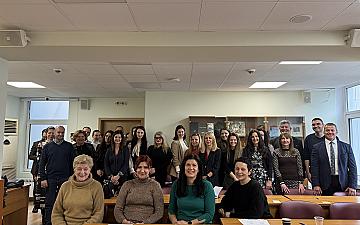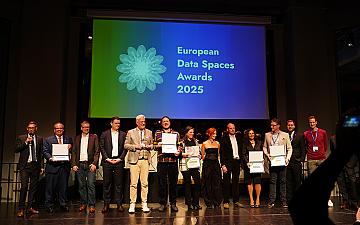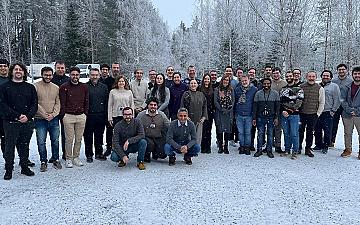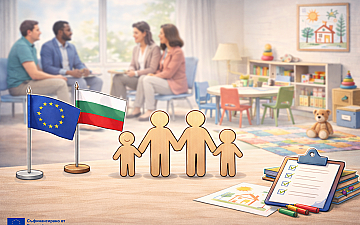The rise of social media has been associated with the emergence of greater freedom of speech and of expression without censorship or barriers of any kind. The opportunity any person to present information regarding any subject, including politics, without being controlled by a state authority, has opened up an access to a variety of knowledge, facts, events, which would not have been possible, without the presence of social media. This has also facilitated the bringing together of like-minded people, and initiated many movements at national and international level, whose purpose is to fight against the established social order. Different problems that have been concealed by officials and authorities at a higher level in the state administration also became public. The positive effect of social media has been particularly noticeable in countries where media freedom is severely affected, such as Bulgaria, Turkey, and Russia (Reporters Without Borders, 2021).
Despite all the benefits of social media platforms, an increased concern is being raised with regard to their negative impact. In the political field, the emergence of social media outlets has enabled people to unilaterally share their opinions on public issues by writing a post and/or publication. The social media algorithm is designed in a way to offer everyone an information that best meets their interests and views, according to data provided by the user themselves. Due to the fact that people see only what corresponds to their own opinion and the absence of dialogue with counter statements do not allow users to see alternative sources of information. Thus, people increasingly reinforce their views without considering the arguments of the opposing side. Therefore, when people encounter distorted and fake news, conforming their already established opinion, they accept them as truth (the so-called “confirmation bias”) without questioning it at all. This, in turn, leads to a polarization of society and enables manipulation. Due to the availability of a vast amount of information, verifying its accuracy and truthfulness also becomes significantly more difficult (Allushi, J., 2017). Instead of addressing the issues arising from social media, political actors no longer use the services of journalists to disseminate their messages rather than that they create media content themselves, taking advantage of a wider audience and not always reliable sources of information and data. This not only leads to lack of editorial responsibility regarding political messages (in accordance with the accepted professional ethics), but also to the spread of misinformation (Stankova S., 2019). For example, a much more appropriate way to do this is to hold public debates on prominent societal issues (Stefanov, R., Vladimirov, M., Georgiev, G., 2021).
Mostly young people are exposed to the negative influence, due to the lack of experience and the incapability to differentiate true from false information. The way young people consume news from social media also contributes to their delusion. Instead of searching for information, they come across it, randomly. They open the news sporadically and engage briefly with the content. Thus, news become indistinguishable from other entertainment or social information (Boczkowski, P., Mitchelstein, E., Matassi, M., 2017).
A possible approach to reduce disinformation among young people is to work towards increasing media literacy and educating critical thinking from an early age. They need to be encouraged to question the authorship of any information, the interests it serves, the appeals it makes, and the added value (Alexieva, M., 2014). Another method would be to change the algorithm of social media platforms, so that the information that reaches people is not one-sided and does not lead to polarization among the citizens. Finally, journalists could decrease the spread of disinformation by adhering to basic ethical principles of truth-seeking, holding political actors accountable through high-quality investigative reporting. Lies and misinformation should be named as such (Stankova S., 2019).
The disinformation messages being spread on social media undermine the foundations of the entire democratic world. In countries with authoritarian regimes platforms are used to increase influence and manipulate elections. Bulgaria is one of the countries highly exposed to the Russian influence. According to the Center for the Study of Democracy, many Bulgarians believe that only because of the European Green Pact electricity and gas prices have increased and that only Russia can rescue Europe from an energy crisis. Such beliefs are quite common due to lack of awareness among the citizens. Moreover, the country does not pay attention to the negative influence, which this type of propaganda has. Very few institutions are working to mitigate the problem in practice (Stefanov, R., 2021).
In conclusion, social media platforms have the potential to contribute positively to the field of politics, but also to erode the principles of democracy. Therefore, much more attention should be paid to the difficulties that arise as solving them is possible, but to do so a wider awareness about the problem by both citizens and government is needed.
Bibliography:
Allushi, J., 2017, Social media: Do they enhance or erode democracy?, available at: https://www.aubg.edu/documents/1768
Boczkowski, P., Mitchelstein, E., Matassi, M., 2017, Incident news: How young people consume news on social media, available at: https://scholarspace.manoa.hawaii.edu/bitstream/10125/41371/1/paper0222.pdf
Assoc. Prof. Alexieva, M., PhD, 2014, Relation “Media Culture – media education – media literacy", available at: http://research.bfu.bg:8080/jspui/bitstream/123456789/592/1/BFU_2014_01_Aleksieva.pdf
Reporters Without Borders, 2021 World Press Freedom Index, available at: https://rsf.org/en/ranking
Stankova, S., 2019, Social Networks in Political Communication, available at: https://rhetoric.bg/%D1%81%D0%BE%D1%86%D0%B8%D0%B0%D0%BB%D0%BD%D0%B8%D1%82%D0%B5-%D0%BC%D1%80%D0%B5%D0%B6%D0%B8-%D0%B2-%D0%BF%D0%BE%D0%BB%D0%B8%D1%82%D0%B8%D1%87%D0%B5%D1%81%D0%BA%D0%B0%D1%82%D0%B0-%D0%BA%D0%BE%D0%BC
Center for the Study of Democracy (Stefanov, R., Vladimirov, M., Georgiev, G), 2021, Propaganda and disinformation in the electoral campaign: key messages and dissemination channels, available at: https://csd.bg/bg/events/event/propaganda-i-dezinformacija-v-predizbornata-kampanija-osnovni-poslanija-i-kanali-za-razprostranenie/









